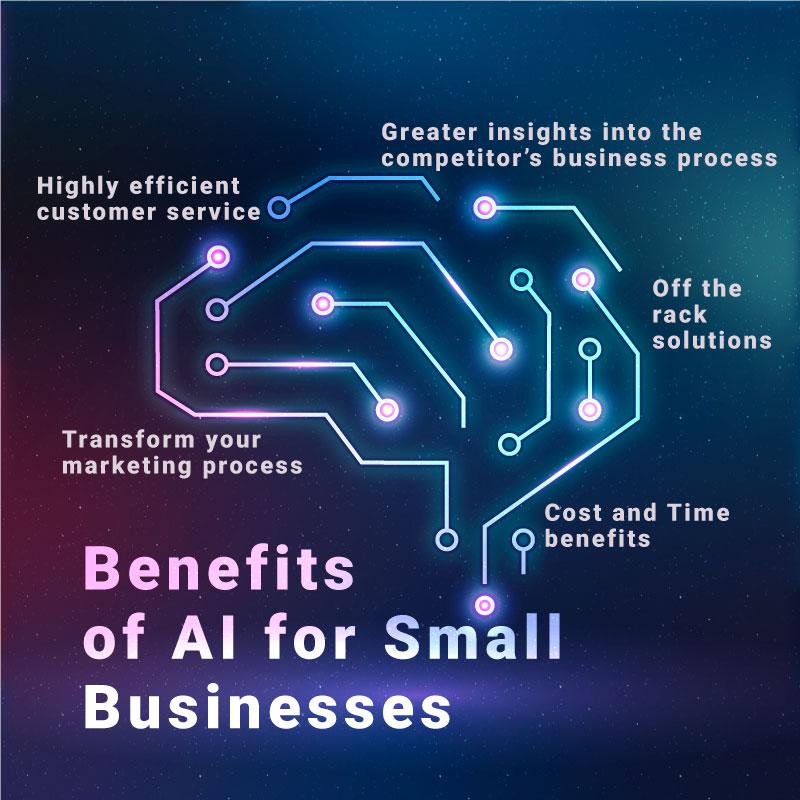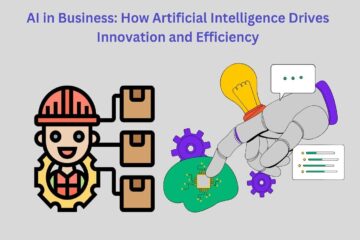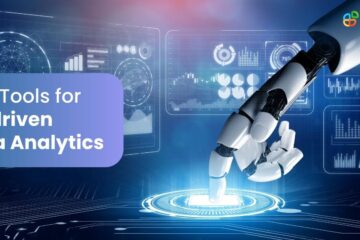
AI for small businesses
In a world where technology evolves at lightning speed, small businesses face a daunting challenge: keeping pace with the innovations that can propel them forward. Enter Artificial Intelligence (AI) – once a futuristic concept reserved for tech giants, now a transformative tool that small businesses can harness to streamline operations, enhance customer experiences, and drive growth. This article will explore how AI is breaking down barriers for small enterprises, offering insights into practical applications, success stories, and essential strategies for implementation. As we delve into the world of AI for small businesses, we’ll uncover not just the possibilities, but also the imperative nature of embracing these advancements in today’s competitive landscape. Whether you’re a seasoned entrepreneur or just starting, understanding the role of AI could be the key to unlocking your business’s full potential.
Table of Contents
- Harnessing AI to Enhance Operational Efficiency in Small Businesses
- Transforming Customer Engagement with Intelligent Solutions
- Leveraging Data Analytics for Strategic Decision-Making
- Building a Cost-Effective AI Strategy for Sustainable Growth
- Key Takeaways
Harnessing AI to Enhance Operational Efficiency in Small Businesses
Implementing AI solutions can transform how small businesses operate, streamlining processes that once consumed valuable time and resources. By automating routine tasks, such as customer inquiries and inventory management, small businesses can redirect their focus toward strategic growth. This shift not only enhances productivity but also improves the customer experience, as businesses can respond more swiftly and accurately to client needs. Key areas where AI can contribute include:
- Customer Support: AI-powered chatbots provide instant responses to frequently asked questions, significantly reducing wait times.
- Data Analytics: AI tools analyze sales trends, enabling businesses to make informed decisions based on consumer behavior.
- Supply Chain Management: By optimizing inventory levels through predictive analytics, small businesses can lower costs and improve stock availability.
Moreover, the integration of AI into marketing strategies can yield impressive results. Personalized marketing efforts powered by AI algorithms allow businesses to reach customers with tailored promotions, enhancing engagement and conversion rates. For instance, small businesses can utilize AI-driven insights to determine the most effective channels for their target audience. Delivering the right message at the right time can be the catalyst for increased sales, creating a competitive advantage against larger enterprises. As an example, Forbes highlights that AI can analyze consumer preferences better than traditional methods. Ultimately, these innovations allow small businesses to keep pace with industry leaders while maximizing operational efficiency.
Transforming Customer Engagement with Intelligent Solutions
Customer engagement is evolving rapidly, driven by the integration of intelligent solutions that simplify interactions and enhance satisfaction. Small businesses can leverage techniques such as chatbots, personalized recommendations, and automated responses to create a seamless experience for their customers. These tools not only reduce the burden on human resources but also ensure that customer queries are addressed promptly and effectively, leading to improved retention and loyalty.
To illustrate the impact of these innovations, consider the benefits they bring:
- 24/7 Availability: Automated systems can assist customers anytime, eliminating the frustration of waiting for business hours.
- Tailored Interactions: Utilizing data analytics, businesses can deliver customized content and offers, making customers feel valued.
- Efficiency Gains: Staffing costs can be optimized as intelligent systems handle routine inquiries, allowing teams to focus on complex issues.
| Intelligent Solutions | Key Advantages |
|---|---|
| Chatbots | Instant responses and support |
| Predictive Analytics | Understanding customer behavior patterns |
| CRM Automation | Streamlined customer relationship management |
For further insights, refer to resources like Harvard Business Review which discuss the role of AI in enhancing customer experiences, and check out my previous post on leveraging data for business growth to understand how data complements these intelligent solutions.
Leveraging Data Analytics for Strategic Decision-Making
Understanding customer behavior lies at the heart of effective business strategies, and data analytics provides the roadmap. By harnessing insights from existing data, small businesses can tailor their offerings and marketing approaches to meet specific needs. Start by analyzing purchasing patterns, customer feedback, and demographic information. This targeted approach allows businesses to identify opportunities for improvement and innovation, such as developing new products or enhancing customer service. As noted by Forbes, over 60% of small businesses find that data-driven decision-making leads to better performance.
Furthermore, adopting advanced analytics tools can transform raw data into actionable strategies. Consider utilizing predictive analytics to forecast future trends or customer behaviors. This proactive mindset allows small businesses to allocate resources efficiently and stay ahead of the competition. The following table summarizes some popular analytics tools for small businesses and their key features:
| Tool | Key Features |
|---|---|
| Google Analytics | Website traffic analysis, audience segmentation, goal tracking |
| Tableau | Data visualization, collaboration features, integration options |
| QuickBooks | Financial reporting, expense tracking, invoicing capabilities |
With these tools, small businesses not only gain insights but also cultivate a data-centric culture, which is crucial for sustainable growth in a competitive landscape. As AI continues to evolve, those who embrace data analytics will find themselves equipped with the insights necessary for navigating market challenges and seizing new opportunities.
Building a Cost-Effective AI Strategy for Sustainable Growth
Crafting a cost-effective AI strategy requires understanding both immediate business needs and long-term objectives. Small businesses should prioritize scalable solutions that allow for gradual investment as their operations grow. This approach not only conserves resources but also facilitates a smoother integration of AI technologies into existing workflows. Consider the following key aspects when developing your strategy:
- Identify Core Focus Areas: Determine which processes can benefit most from AI—be it customer service automation, data analysis, or marketing optimization.
- Leverage Open-Source Solutions: Take advantage of open-source AI tools that offer robust functionality without the hefty price tag, fostering innovation without draining budgets.
- Engage in Training and Upskilling: Invest in staff training to ensure that team members can effectively utilize AI tools, promoting a culture of continuous learning.
Additionally, implementing a trial and feedback loop can significantly enhance AI adoption. Small businesses can start by piloting a single AI application, analyzing its impact on productivity, and refining their approach based on real-world results. Organizations like MicroSourcing suggest starting small with budget-friendly tools and expanding as the team becomes more familiar with the technology. Utilizing the right metrics will help gauge the success of these implementations:
| Metric | Purpose |
|---|---|
| Cost Savings | Measure reductions in operational expenses through AI automation. |
| Customer Satisfaction Scores | Assess improvements in customer feedback and repeat business. |
| Employee Productivity | Evaluate changes in output and efficiency following AI tool integration. |
Key Takeaways
As we navigate the evolving landscape of technology, small businesses stand on the brink of a transformative era, thanks to the advent of artificial intelligence. This powerful tool offers not only the potential for efficiency and innovation but also the opportunity to level the playing field in a fiercely competitive market. By embracing AI, small enterprises can harness data-driven insights, enhance customer experiences, and streamline operations, turning challenges into stepping stones toward growth.
While the journey to integrate AI may seem daunting, the myriad of resources and tools available today makes it more accessible than ever. The future belongs to those who are willing to adapt, evolve, and innovate. As you consider the possibilities that AI might bring to your small business, remember that each incremental step you take can lead to significant leaps forward.
In a world where technology continues to redefine boundaries, seize the moment to explore how AI can become a vital ally on your path to success. The possibilities are as limitless as your ambition—embrace the future and watch your small business thrive.












